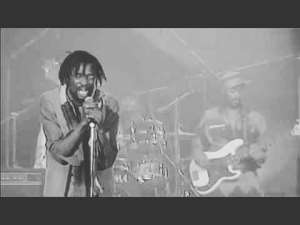
The popular song "Guantanamera" was composed originally as a love song. The original story behind the song was to talk about a woman from Guantanamo who fled from her husband after suffering years of abuse and infidelity. The song would lose its romantic lyrics to become Cuba's patriotic anthem during the Fidel Castro led revolution. The song served as a motivational anthem for fighters when they were down and a chant of celebration when victory beckoned. While we can not credit a single artiste for its popularity, we can of course attempt to describe how influential it was in the revolution, the reason it remains one of the most popular songs on earth, years after the revolution.
Nations would come to have their own "Guantanamera", music as their main ticket to freedom. One such song of hope and protest was Hugh Masakela's Bring Him Back. In that song, Hugh demanded that the apartheid regime brings Nelson Mandela (who was incarcerated) back to Soweto to lead the people to freedom. Brenda Fassi, Miriam Makeba and Lucky Dube were among the many musicians seen as the voices of the struggle because they spoke out through their music. In fact for Lucky Dube, in 1985, his anti-apartheid album was banned for being too critical of the regime.
In Uganda, Bobi Wine has always used his music to keep the ghettos inspired and hoping that the system will get better. Through his music, he has established himself as the voice of the voiceless. He has dared to bring down the dictator by contesting for the presidency. During the last election, twenty-three-year-old law student, Marion Kirabo, who was one of his supporters told the BBC that he inspired her to run for a local council seat - though she lost.
"Even before his political life he was someone the youth could identify with," she says.
"Especially through his music, you could clearly see that he understood the social issues that young people were facing, especially young people from the ghetto."
He has suffered for his activism but never is giving up because the people will always need a voice.
For reggae lovers like me, we are aware of the power of reggae to conscientize people towards developing a hatred for injustice, abuse, corruption and of course, the “Babylon” system keeping us in poverty. In the 70s, songs like ‘Get Up, Stand Up by Bob Marley, ‘It is a Revolution Time’ by Culture, ‘War’ by Bob Marley, inspired freedom fighters to take on dictatorial and colonial governments.
Today's Nigeria sees artists across genres attempting to fill the boots of those before them in holding leaders to account; the great Fela Kuti who in the 70s was an outspoken critic and target of the military regimes in Nigeria. Fela Kuti not only used his music to harass the system, he actually founded the Kalakuta Republic and declared it independent of Nigeria in 1970. The Kalakuta Republic was the name he gave to the communal compound that housed his family, band members, and recording studio. On social media presently, Nigerian celebrities have never feared to call out their leaders when things didn't go right.
Ghana needs her own "Guantanamera". She needs the various voices adorning her airwaves and screens to sing along to the music. Her "celebrities" owe her at least that much of a moral obligation, to stand with the common men they have influence over during their periods of struggle. It is the right thing to do.
"Won't you help to sing, the songs of freedom? It's all I ever had, redemption song......."




 'Kill whoever will rig Ejisu by-election' – Independent Candidate supporters inv...
'Kill whoever will rig Ejisu by-election' – Independent Candidate supporters inv...
 Ashanti Region: ‘Apologize to me for claiming I owe electricity bills else... – ...
Ashanti Region: ‘Apologize to me for claiming I owe electricity bills else... – ...
 Ghana is a mess; citizens will stand for their party even if they’re dying — Kof...
Ghana is a mess; citizens will stand for their party even if they’re dying — Kof...
 Internet shutdown an abuse of human rights — CSOs to gov't
Internet shutdown an abuse of human rights — CSOs to gov't
 Free SHS policy: Eating Tom Brown in the morning, afternoon, evening will be a t...
Free SHS policy: Eating Tom Brown in the morning, afternoon, evening will be a t...
 Dumsor: A British energy expert 'lied' Ghanaians, causing us to abandon energy p...
Dumsor: A British energy expert 'lied' Ghanaians, causing us to abandon energy p...
 What a speech! — Imani Africa boss reacts to Prof. Opoku Agyemang’s presentation
What a speech! — Imani Africa boss reacts to Prof. Opoku Agyemang’s presentation
 Dumsor: Tell us the truth — Atik Mohammed to ECG
Dumsor: Tell us the truth — Atik Mohammed to ECG
 Dumsor: Don't rush to demand timetable; the problem may be temporary — Atik Moha...
Dumsor: Don't rush to demand timetable; the problem may be temporary — Atik Moha...
 Space X Starlink’s satellite broadband approved in Ghana — NCA
Space X Starlink’s satellite broadband approved in Ghana — NCA
